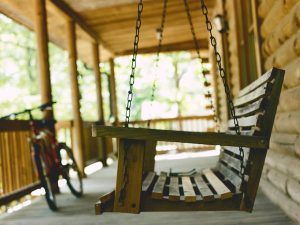Low-impact living - introduction

“If to change ourselves is to change our worlds, and the relation is reciprocal, then the project of history making is never a distant one but always right here, on the borders of our sensing, thinking, feeling, moving bodies.” – J K Gibson-Graham
Contents
What is low-impact living?
In a world dominated by a corporate empire that makes huge profits from extraction and war, we’ve reached a point now where the concepts of ‘progress’ and ‘development’ are no longer valid. Life is likely to be very different for the next few generations, with broken supply chains, mass migrations, resource depletion, destruction of the biosphere (our literal and only life-support system), destruction of community, and more power concentration and war. There has to be a new era, of strong communities, local provisioning and shorter supply chains. We’re focusing on helping reduce human impact on the biosphere by providing alternatives to empire, via self-provisioning and commons. Adopting any of our topics is an act of rebellion against the current system.

There are those who advocate taking high-impact living further – accelerating growth and technology to colonise the universe, in case the Earth becomes uninhabitable. We don’t think it’s wise to destroy the biosphere of the only planet we know for sure has one, in an attempt to get to other planets. But we’re not anti-technology either. We can choose the best of all ages – natural homes, local organic food, internet and solar panels. But we don’t need nuclear power, genetic modification, space travel and high-tech weaponry, which are not ‘convivial’, promote perpetual growth, only benefit the few and create more problems than they (are supposed to) solve.

It’s not about ‘prepping’ either, which is individualistic, and usually includes hoarding weapons and ammunition to protect resources from others. We’re advocating self-reliance, but within a context of mutual aid and commons provisioning. Low-impact living will be more difficult for some than others – but there’s something that everyone can do.
What are the benefits of low-impact living?
- Gain skills to provide for your family and community, that could lead to a more interesting and satisfying career.
- Physical and mental health, happiness and security.
- Contribute less to the destruction of the biosphere, by consuming fewer resources and creating less waste.
- Escape corporate tedium.
- Inspire and inform others.
- Make new friends and help build resilient, friendly and safe communities.
- Prepare for any kind of societal breakdown – yourself and with your community.

What can I do?
We provide a knowledge bank of 250+ topics, arranged into 12 categories – ‘sustainability on steroids’ as one commenter put it. Some topics are foundational, before you start re-skilling.
- Personal development: look after yourself physically and emotionally.
- Philosophy: think critically – don’t passively accept the corporate media.
- Nature awareness: get into nature regularly.
- Community: build strong, supportive social relationships.
- Downshifting: consume your fair share.
Then start gaining skills to provide things for your household and friends.
Topics range from easy things that you can start to do immediately, to building your own home, harvesting your own energy or running a smallholding.
For each topic we provide a range of resources: basic introduction, books, magazines; links, blog articles, course, products and service providers; and experts to answer queries.

Scale
If you want to learn to install renewables, bake bread or make pottery (for example), don’t just do it for yourself, do it for your community. The same goes for the production of timber, firewood, meat, eggs, utensils, furniture, textiles, herbal remedies, honey, cheese, beer, cider or wine, baskets, clothes or textiles. Once you have the skills and equipment, it’s a waste of resources to use them just for yourself. A community needs a bread oven / pottery kiln / blacksmith’s forge etc., not each household. But the household scale is perfect for composting, veg, herb and fruit growing, cycling, recycling, a few chickens, DIY, making natural cleaning products etc.

Career
You don’t have to be a corporate drone. If you feel trapped in corporate employment, you could get out straight away by going WWOOFing.
Reskill for a new career. After providing for yourself / friends, if you enjoy it and are good at it begin to provide for your community too. It could be the start of a new career, or a sideline to an existing one, contributing to the new commons economy. Where possible, consume from other local people doing the same, and hopefully, they’ll do the same for you.

Commons
Be a commoner – help build the commons in your community. At some point, you’ll be able to provide and obtain goods and services via mutual credit. Local mutual credit clubs will have jobs boards for products and services that are required locally, but are not currently provided by members; local businesses or individuals can be invited into the club to provide them, with training provided if those skills aren’t available locally. Low-impact living and the commons economy complement each other – and actually, require each other. We can’t have a commons economy if high-impact living is the norm; and low-impact living is impossible in an economy that siphons wealth out of communities and has to constantly grow.

Contact us if you’re interested in becoming involved with any of the ideas outlined above; or if you’d like to volunteer, work or collaborate with us, provide funding or help in any other way.
Subscribe to our blog, newsletter and social media channels. And of course we’d love you to send people our way in any way that works for you. Do you have any other thoughts or comments? We’d love to hear from you.
Specialist(s)
The specialist(s) below will respond to queries on this topic. Please comment in the box at the bottom of the page.

Dave Darby is the founder of Lowimpact.org. ‘Specialist’ is definitely the wrong word, as this is a huge topic, with many component parts. If you post queries on specific topics, we’ll try to get specialists to answer them for you. This page is for general comments and queries, and discussing how we encourage low-impact living generally.





3 Comments
One aspect of low impact living that you do not consider is data usage. Every bit has a price, and loading your page costs 1.9 mb. Now, this is not a lot by web 2.0 standards, but I do find it funny that this facet goes completely unnoticed.
An interesting point. There are some interesting articles which explore these issues (and the impact of the hardware used to browse, too) on the Low Tech Magazine website, in particular http://www.lowtechmagazine.com/2015/10/can-the-internet-run-on-renewable-energy.html and http://www.lowtechmagazine.com/2009/06/embodied-energy-of-digital-technology.html.
I was going to add a paragraph about data, but I realised that that would increase the cost of opening the page, so I didn’t. Seriously though, you’re absolutely right – especially as computers were supposed to make paper virtually obsolete, which would have balanced things out a bit – but they’ve done no such thing. But the only reason that we omit any aspect of human life is that there are, unfortunately, zillions of other things that humans do that are damaging to nature, and there’s only so much time. We’ll get there though (interesting articles, Sophie).